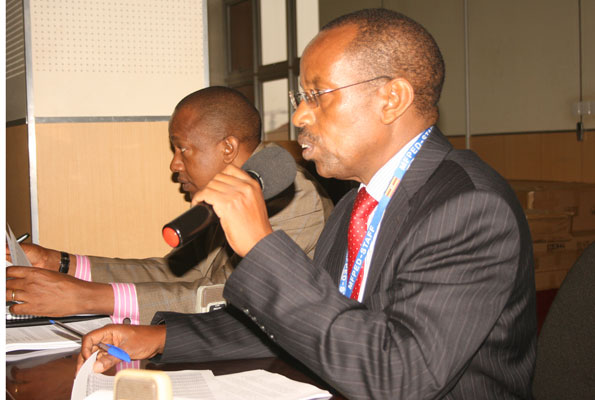Following several public and media comments about the proposed International Specialized Hospital of Uganda, I wish to make the following clarifications in light of the various mis-understandings that have been made;
1. Who is the Project Owner?
The Project is fully owned by the Government of Uganda. The responsibility for the Hospital development has been given to FINASI-ROKO Construction Ltd.
2. Who owns the Project Land?
i. The Project land was legally acquired by Government and given to the
Joint Clinical Research Center (JCRC), a portion of which has been
transferred to the Ministry of Health.
ii. The ownership of the Project Land has been and will remain Government
of Uganda represented by the Uganda Land Commission – Ministry of
Health. No Land has been given to FINASI-ROKO Construction Ltd.
3. What is the role of FINASI – ROKO Construction Ltd?
FINASI-ROKO Construction Ltd is the Project Developer responsible for raising
the financing for the design, construction, equipping, and the training of medical
personnel over a 2 years.
4. What is the cost of the Hospital?
i. The total Project Cost is US$ 249.9 million inclusive of a 264-bed Hospital,
an 82–room budget Hotel, a 500-seater Conference Hall, Health Training
School and Staff Housing; all covering 85,000 square meters of built-up area.
ii. The cost also includes medicines for 1 year; and training costs for
Ugandan health professional
5. What is the additional cost that increases the amount to US$ 379.71 million
The additional US$ 129.81 million represents the ‘Time Value of Money’ or interest cost of payment that Government has to incur as a result of repaying
FINASI_ROKO Construction over 6 years. The US$ 129.71 million represents an
effective interest of 6.49%.
6. How will FINASI-ROKO Construction Ltd be repaid?
FINASI-ROKO Construction Ltd will be repaid over 6 years after the 2 year period for the development for the Hospital
7. What assurances/security does FINASI –ROKO Construction Ltd require from
Government that it will be re-paid?
FINASI-ROKO Construction requires that Government issues Irrevocable and
Unconditional Promissory Notes for only completed and certified Project activities and works clearly showing how much is due to FINASI- ROKO
Construction, and when the amount will be paid by Government of Uganda
8. Will Government lose money on the Project?
Government will only issue Promissory Notes for Project activities and works
that have been completed and certified by Government’s Owner’s Engineer.
9. Is Government issuing a guarantee for a loan that the FINASI-ROKO
Construction may be getting to finance the Project Development?
Government is not issuing any guarantee for a loan. It is only giving assurances
(a firm Promise though irrevocable Promissory Notes) that what is due to
FINASI-ROKO Construction will be paid at a future date.
10.Who will manage the Hospital after construction?
The Hospital will be managed for 8 years after construction by the International
Specialized Hospital of Uganda Ltd., which is owned by FINASI International
Group, which is partnering with the Pope John the 23rd Hospital in Bergamo
11.Why has Government chosen this model for Hospital development?
FINASI International Group has experience in developing Hospitals at
International Standards to enable Joint Commission International (JCI)
accreditation which Government requires in order to stop outflow of foreign
exchange used to send persons abroad for advance medical care.
What are the benefits of the Hospital?
The Hospital Project will benefit Uganda in the following ways:-
i. Stop the outflow of foreign resources not only medical treatment abroad
(US$ 73 mn in 2014), but also the costs of travel and upkeep (US$ 113 million in 2014).
Information from the High Commission of India in Uganda reports that 8,200 persons applied for medical visas in 2016, 5,000 of whom are Government- sponsored. At an average spend of US$ 15,000, this totals approximately US$ 123 million.
ii. Use the current Government expenditure on treatment abroad to establish a Government-owned, world-class healthcare capacity to treat
complicated medical ailments for both national and African region.
iii. The presence of a world-class health facility locally, will allow many more
patients to be treated with the same Government resources.
iv. Increase foreign exchange inflows as persons from the region will also have
access and also increase medical tourism.
v. Develop skills and expertise of Uganda health professionals to provide advanced medical care, given that ISHU will use 1,100 Ugandan medical personnel at ISHU, supervised by 30-40 medical expatriates.
vi. Provide advanced diagnostics for early detection of major complicated
ailments, as many cases of Government sponsored persons are sent abroad
when ailments are advanced and more difficult or impossible to successfully treat.
Keith Muhakanizi is the Permanent Secretary Ministry of Finance and Secretary to the Treasury





